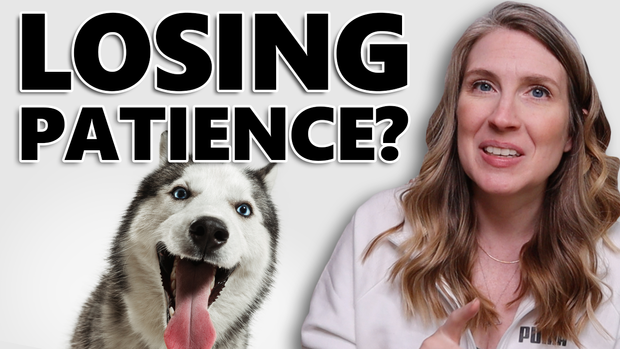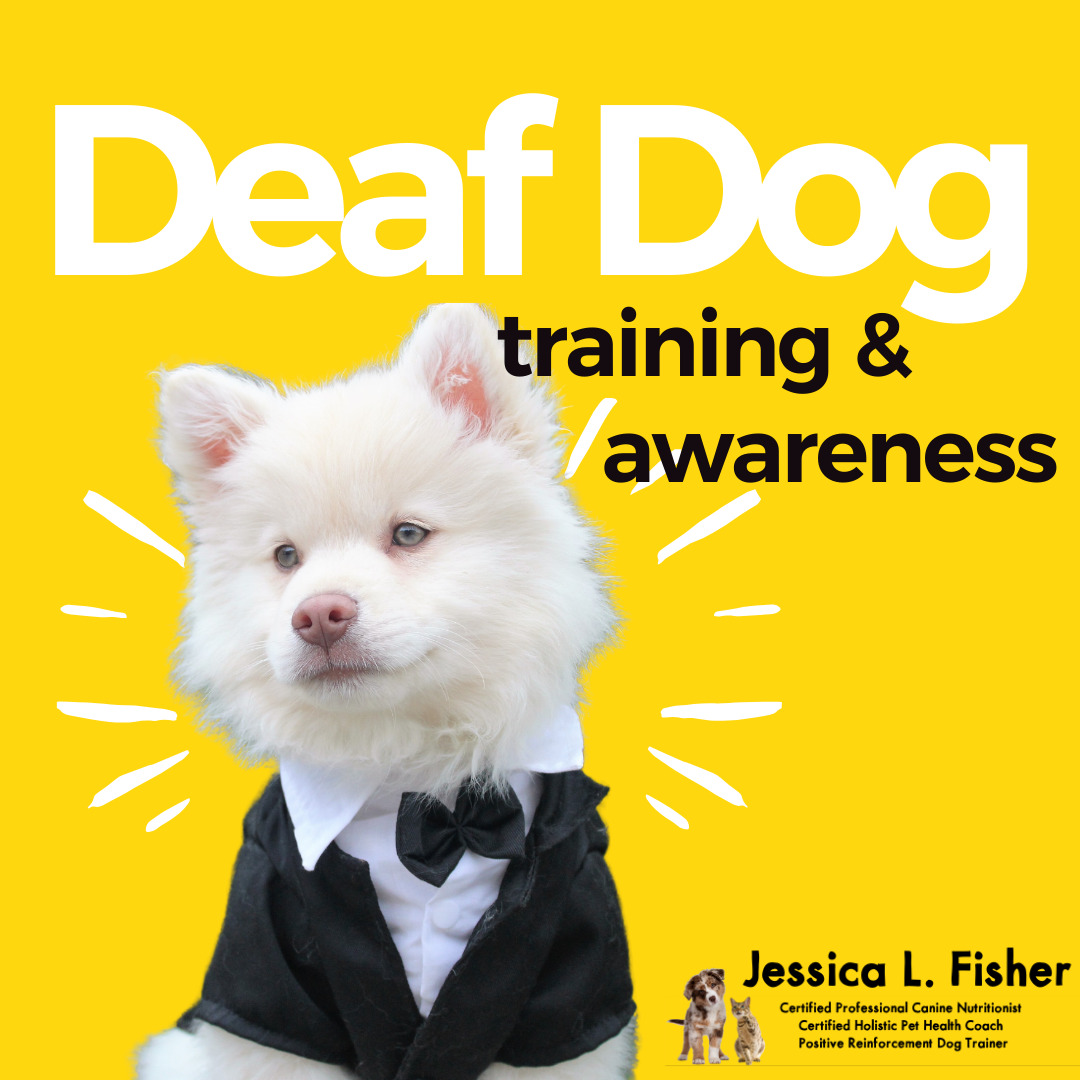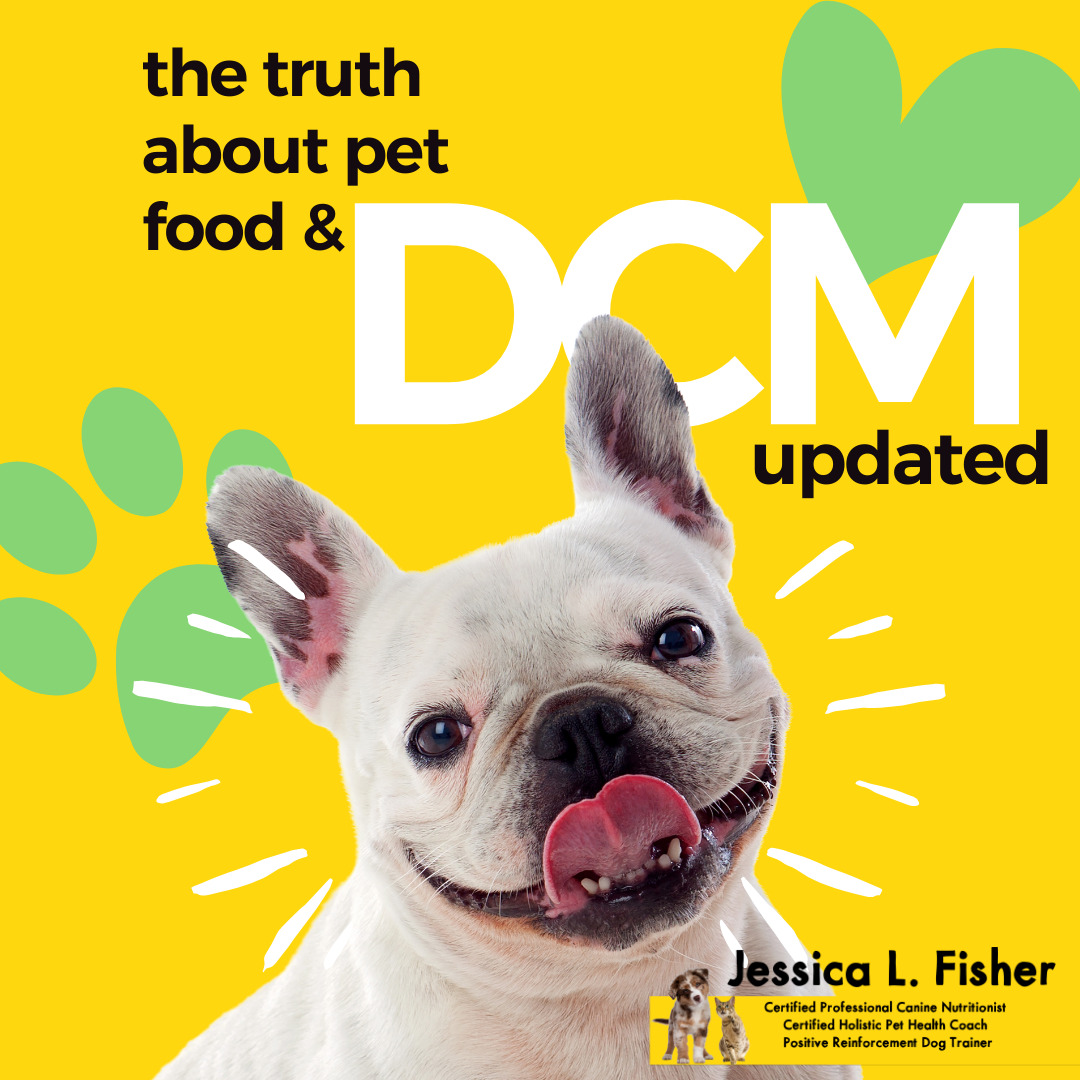We’ve all been there. Your dog is getting into something they shouldn’t, or they aren’t responding to your cues and you get super frustrated. Maybe you find your self raising your voice, getting angry. I’ve been there too.
Ok, let’s be real here. My patience level with my pets is pretty darn high. My husband often asks me how I do it, especially in regards to the cats… Ok, well, in regards to Romeo specifically. If you know, you know.
I break down and lose it every once in a while, though I do think I have two things going for me here.
1. I’ve had many animals for the entirety of my adult life and I’ve been through a lot with them. The various situations I’ve been through with my pets over the past 20 years has given me a vast knowledge of experiences that I can pull from to know what is going on and how to best handle the situation.
This may not be you, and I get that. First time pet parents can find the situation challenging and overwhelming. That is actually one of the reasons we’ll go over in a bit.
2. I find myself having a greater amount of empathy for animals. Maybe it’s because I’ve always had the unconditional love of an animal to get me through life’s situations, or maybe it’s because I’m just more in tune to the purity of animal spirit. As an introvert, I am much more comfortable around animals than people.
Either way, I do notice others around me losing their patience with their dogs and honestly it makes my jaw drop. I couldn’t imaging saying some of the things I hear people say about their dogs.
I was at Thanksgiving the other day and my cousin’s wife’s family was there. I had never met them before so everything about them was new to me. One person actually said they were thinking about getting rid of their new puppy. Her words, not mine. My jaw literally dropped. My husband looked at me and I could tell he was cautious of the next thing that might come out of my mouth. Fortunately, he stepped in and spoke up because I honestly don’t know what I was going to say. I had so many thoughts swirling around in my head from “how could you” to “f*ck you” and everything in between.
The reality is that we all can get frustrated. It’s normal. We don’t speak the same language, we aren’t the same species. My number one rule is to have empathy, but there is more to the story.
A Look At Behaviors
Every behavior has a response. If we are just looking at you and your dog in this instance, here is what that looks like:
– Your dog does something (in this case, using your shoe as a chew toy)
– You react to that behavior (in this case, you grab the shoe and yell at your dog)
– Your dog reacts to your behavior (in this case, the reaction will probably be to cower)
Many people would look at this and say their dog knew they were doing something wrong. Maybe even that they feel guilty about it. Cue wrong answer buzzer sound.
The dog doesn’t know that you are upset over the shoe, they know your body language and that is what they respond to. We have to remember that dogs have been living alongside humans for a very long time. They have evolved to read our body language so well that it’s almost like a native language to them. Each dog also learns their individual owners, so they learn quickly what response is expected based on your vocal tone and behaviors.
They know that when you yell and get upset, the expected response is to cower (in this case). A puppy may not do this yet, because they are new to you and still learning, but over time, this will develop.
Right now you may be realizing that it is actually our actions and behaviors that shape our dog’s actions and behaviors. Cue angelic “AAHHHHH” sound.
If we want to be less frustrated with our dog, we need to change our behaviors and become more aware of ourselves.
Alter Your Frustration
There are things that could be going on with us that make us more prone to frustration. These items will require work on your part, but this is some of the most rewarding work you can do for yourself and for the relationship you have with your dog.
1. Stress – Being stressed out can certainly give you a short fuse. When we aren’t healthy, mentally or physically, our dogs aren’t in tip-top shape either. Healthy flows both up and down the leash! Changing our perception and de-stressing is as important as anything else we do for ourselves and our pets. This isn’t something that you either have or don’t have, it’s a learned skill. Heck, I’m still learning! Set small, attainable goals to help rewire your brain and seek professional help if you feel that you need it.
2. Your dog is stressed – When your dog is stressed, lots can go wrong. Your dog needs mental and physical enrichment and exercises every day. Get outside and let your dog be a dog!
3. Lack of training – Positive reinforcement training is not something that you do once and never go back to. It’s something that we practice every day. Whether a formal training session or just simple cues and responses here and there throughout the day, keeping up with these skills – and letting your dog know that the appropriate responses are still expected – is something you need to do throughout your dog’s lifetime. If you haven’t trained with your dog at all for the specific thing you are frustrated about, then right now is the time to start!
4. Conditioning – the truth is that we live in a world of punishment and negative reinforcement. You have had relationships that weren’t based in positive reinforcement and they have imprinted on your brain. Whether you were grounded for staying out past curfew, or your boyfriend in college ditched you to do something else when you weren’t ready to take things to the next level, you’ve been programmed to understand that punishment is part of life. So it may be your default setting.
This is a big topic, so I’ll try to condense it as much as possible while still getting the message across. Punishment may seem to work at the moment, but it doesn’t have staying power and it doesn’t teach. What do I mean?
Let’s take the boyfriend ditching you for an example. Sure, you felt like crap and it made you want to move faster than you felt comfortable just so you no longer felt disposable. He got what he wanted. But you learned that you can’t trust him. You learned that boys only want you for one thing. You learned that relationships are built on giving the other person what they want. That’s not healthy and isn’t sustainable.
On the other hand, when we use positive reinforcement, we teach our dog that the behaviors we want are rewarded and therefore performed more often.
How Do I Put This Into Practice?
You don’t want to be frustrated with your dog and your dog doesn’t want you to be frustrated with them. You both want the same thing, so how do you get there?
1. Empathy – your dog is doing the best they can to get their needs met with the tools they currently have
2. Training & Practice – use positive reinforcement training with your dog every day. Practice the behaviors you do want so you and your dog both know what is expected
3. Exercise & Enrichment – for both you and your dog. Remember that this is as much about you and your health, both mental and physical) as it is about your dog.
Do you have tips for frustration? Let me know in the comments




